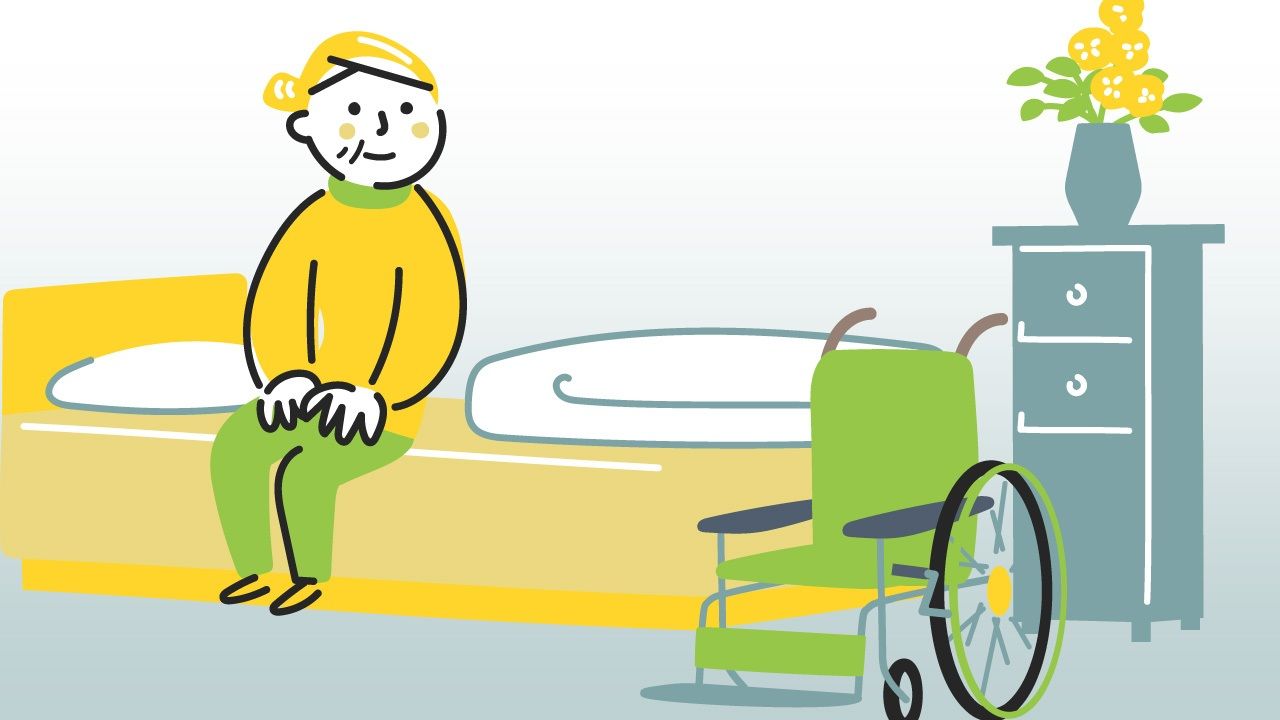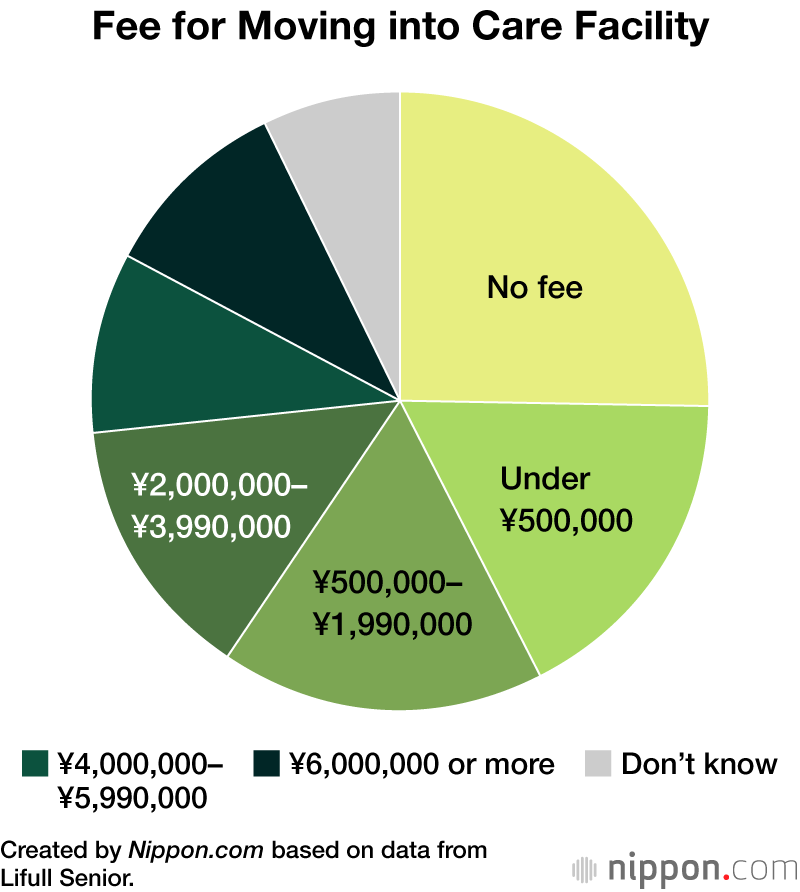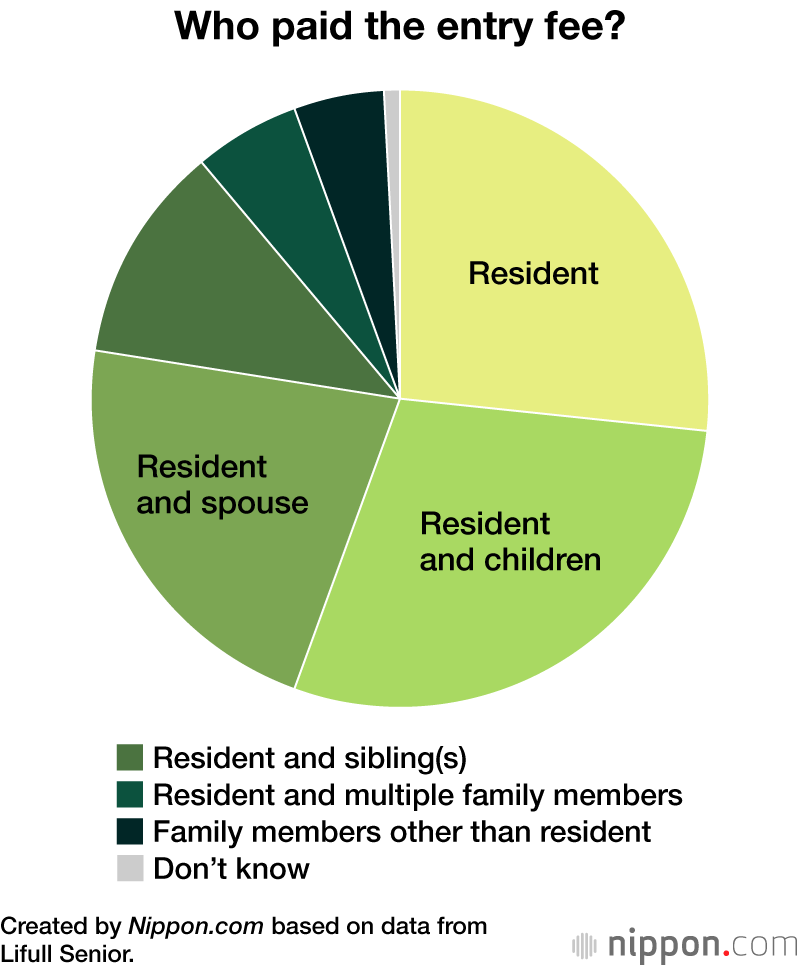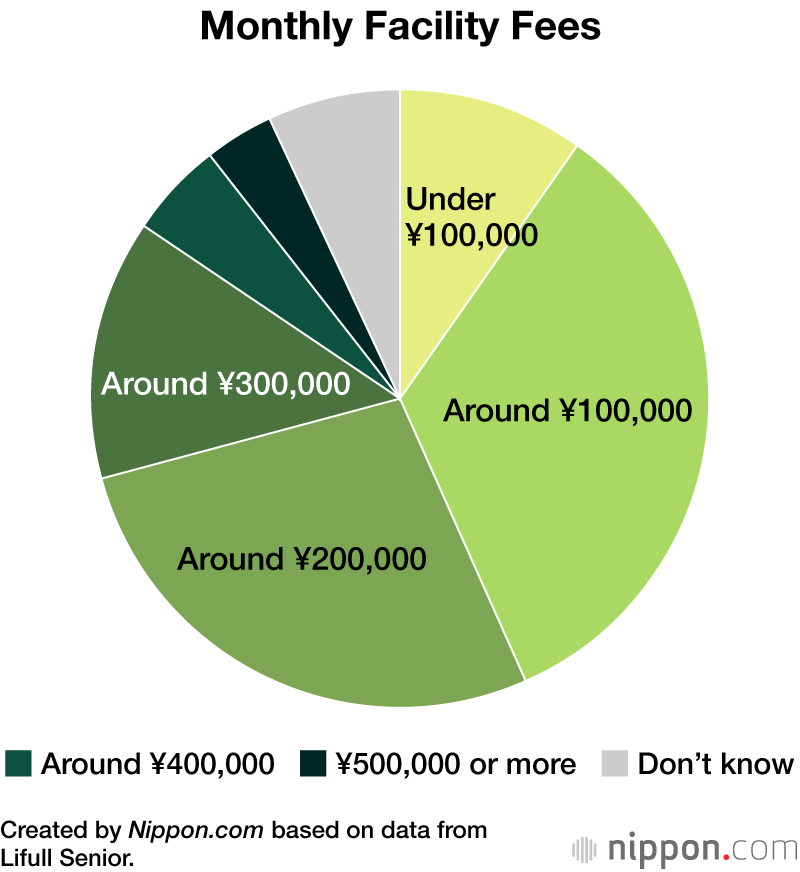
Moving to Senior Care Facility Poses Financial Burden for Family Members
Society- English
- 日本語
- 简体字
- 繁體字
- Français
- Español
- العربية
- Русский
In 2025, demand for caregiving services is expected to increase further in Japan as its baby-boom generation, born from 1947 to 1949, is now 75 or over.
Lifull Senior, a search website on caregiving facilities, conducted a survey of 1,873 people who have had an elderly family member move into a care facility or nursing home over the past year. The focus of the survey was financial issues concerning such a move.
According to the results, only 25.4% of the respondents said that their family member was not charged a fee to cover the expenses for moving into a facility. This suggests that most people will need to prepare additional funds to cover such moving expenses.
In 26.9% of the cases, the one-time fee for entering a care facility or nursing home was solely borne by the resident. In other cases, children, siblings, or other family members shared the burden, meaning that some form of financial burden was placed on the family or relatives as well.
The most common level for the monthly fee charged by a facility was around ¥100,000 (33.6% of survey respondents), followed by ¥200,000 (27.3%), making up nearly 60% of all respondents. Although the monthly fee for nursing home residents includes their share of care services, housing costs, food expenses, and management fees, it is still a heavy burden for the elderly, whose only source of income is their pension. As a point of reference, the pension payment received in fiscal 2025 by a person who had paid pension premiums for 40 years, is ¥69,308 per month, and the combined pension for a married couple under the employees’ pension system is ¥232,784.
(Translated from Japanese. Banner photo © Pixta.)



